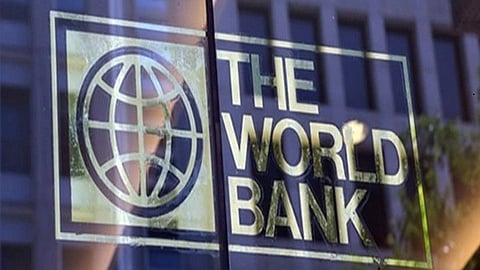

VIJAYAWADA: The World Bank’s Board of Executive Directors has approved an $800 million loan to support the Amaravati Integrated Urban Development Programme in Andhra Pradesh.
This initiative aims to establish Amaravati as a climate-resilient, well-managed urban centre that promotes economic growth, and improves living standards, particularly for vulnerable communities.
Auguste Tano Kouame, World Bank’s Country Director for India, explained Amaravati’s potential as a model for India’s urban transformation. “With India’s urban population projected to double to 950 million by 2050, cities like Amaravati offer unique opportunity to create sustainable, lively growth hubs,” he said. The World Bank will contribute global expertise to design urban institutions and infrastructure, fostering opportunities for women, youth, and marginalised groups.
Currently home to around 1,00,000 residents, Amaravati’s population is expected to grow significantly in the coming years. A master plan for 217 sq km has been prepared to accommodate up to 3.5 million people by 2050 by the State government. The first phase of development is jointly supported by the World Bank and the Asian Development Bank.
The programme will establish an efficient, transparent city management framework that actively involves residents in planning and development. Community consultations will continue throughout the project to ensure inclusive growth. Additionally, the funding is expected to attract over $600 million investments in private sector, boosting the city’s financial sustainability and creating economic opportunities.
According to Balakrishna Menon and Gerald Ollivier, the World Bank task team leaders, mobilising private sector resources is essential for Amaravati’s success. The city’s master plan allocates 22% of residential areas for affordable housing, with the programme supporting this through a dedicated fund to pool private investments.
Amaravati’s Social and Economic Master Plan estimates the potential to generate 50,000 jobs over the next five years in sectors like construction, agro-processing, clean manufacturing and services. Women and youth are key beneficiaries, with job-focused skills training and livelihood initiatives creating pathways to better opportunities. The programme aims to directly train 17,000 individuals, including 10,000 women, to enhance their access to higher-paying jobs.
The World Bank’s expertise will guide the development of critical urban infrastructure, including roads, public transport, flood-mitigation systems, and water/wastewater management. Neighbourhood-level community facilities, public spaces, and affordable housing for underprivileged residents are also part of the project. Smart and green technologies will ensure Amaravati’s resilience to climate change.
The $800 million loan, requested by the Indian government, will support Amaravati’s transformation into an economic hub, and the capital for Andhra Pradesh. The loan, denominated in Japanese Yen, has a maturity period of 29 years, including a six-year grace period.
By catalysing investments and adopting sustainable practices, the Amaravati Integrated Urban Development Programme aims to set a benchmark for urban growth in India, ensuring economic prosperity and improved quality of life for its residents.
Speaking to TNIE, APCRDA Commissioner Katamaneni Bhaskar expressed happiness over the World Bank Board of Executive Directors’ approval of an $800 million sanction for the development of Capital City Amaravati.
“We are waiting for the approval documents from the World Bank, which will be sent after January 1 as their Christmas vacation has commenced, and the board meeting was held on their last working day,” he said. Once they receive the documents they will sign and send them back, he added.